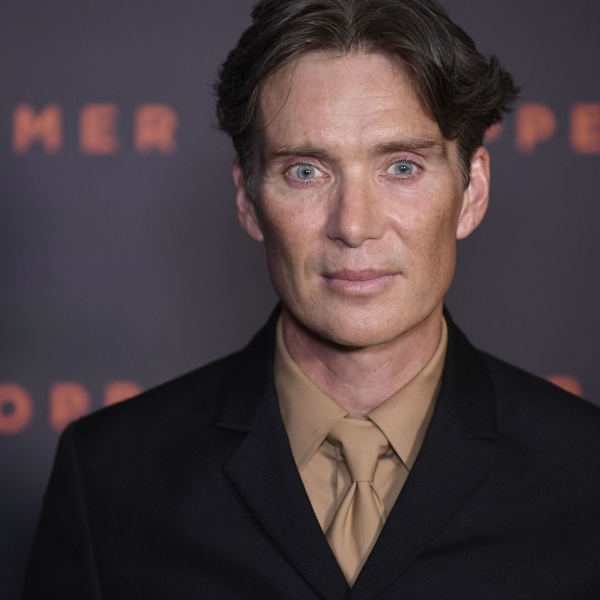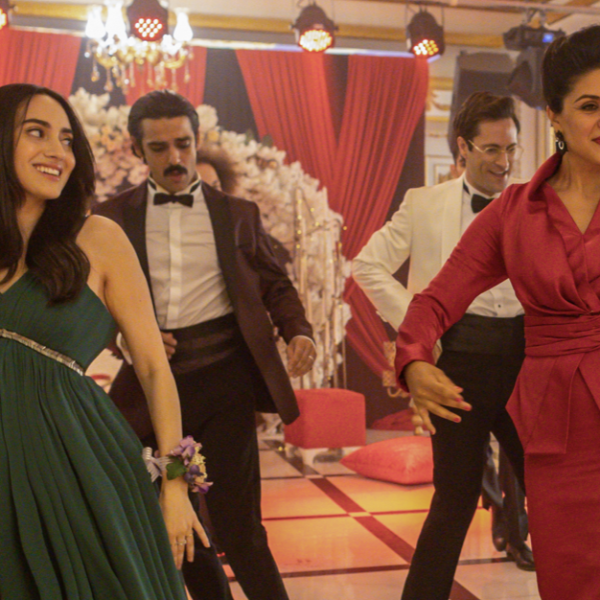Jonathan Glazer is a scalpel-precise filmmaker whose work explores how the smallest fissure in a pattern can undo your sense of time, self, and place. In “Birth,” a woman about to be married is confronted by a child purporting to be the reincarnated ghost of her dead first husband, unraveling her impending marriage. In “Under the Skin,” an alien succubus goes about her ways preying on men in Scotland, only to, as if by accident, discover the humanity within her. In “The Zone of Interest,” a Nazi concentration camp commandant’s body rebels against the horrible doings of his soul.
Glazer stamped his name as a director of eerie music videos for the likes of similarly contrarian groups Radiohead and Massive Attack, later applying the dreamlike and expressionistic demands of that genre to narrative feature lengths. All of his films feature some kind of reverie interlude, where the movie itself appears to be dreaming, recycling and reinterpreting its own images. Music also plays a great role in his films, with Mica Levi lending metallic discord to “Under the Skin,” “The Zone of Interest,” and his short film “The Fall,” while Alexandre Desplat brings sweeping string grandeur to Nicole Kidman’s inner turmoil. You are never fully settled in a Jonathan Glazer picture, as they contort themselves unexpectedly, bringing more than a dash of the avant-garde into what could have just been a mainstream genre outing on paper. “Sexy Beast” is a dark comedy about a sociopathic gangster with some of the most surreal images this side of any crime movie.
If “The Zone of Interest” conveys Glazer’s wrath at the numb complicities of a world churned by evil, then “Under the Skin” is perhaps his most hopeful outpouring of the necessity to anchor humanity in a world alienated by and from itself. Though that film does, of course, end with Scarlett Johansson unzipped from her alien skin, burned to smolders by a male attacker. Yet the cinders of her corpse rise into the air as an almost hopeful exaltation — we are made of starstuff, here for a minute, and then we’re gone.
It’s heartening to see his work finally recognized by the Academy, as “The Zone of Interest” is up for five Academy Awards including Best Picture and Best Director, and will likely win Best International Feature. Glazer did the impossible, which was to sneak his arthouse leanings into a Holocaust movie that on its surface sounds Oscar-ready, but the movie at its core is challenging and frightening, a horror movie zipped up into an Oscar bait framework. And horror, and the reinvention of what that looks like onscreen, always seem to be his primary interests. We are compelled to look away from awfulness but seduced by the beauty of the images — even the sparseness of “The Zone of Interest” has a strange seductive power. The alien woman (Johansson) of “Under the Skin” and her methods seem like the best metaphor for Glazer and his own: allure, followed by unfathomable, unspeakable horror.
With contributions from David Ehrlich.
-
5. “The Fall (2019)

Image Credit: BBC Jonathan Glazer made the BBC-produced seven-minute short “The Fall” about mob mentality and its cruel masked punishment of a man who takes a, well, very long fall down a well, almost as a precursor for the style and substance to come of “The Zone of Interest.” I so enjoy my colleague David Ehrlich’s words on this eerily effective short that I will excerpt them here:
A grim caricature of fascism that recalls the austere music videos that Glazer made for Radiohead (and might also be thought of as an appetizer for his forthcoming movie about Auschwitz), “The Fall” is simple enough to feel like a gag, but haunting enough to land like a warning. A tree shakes on a still night. High among its branches, a terrified man clings to the trunk for dear life. The actor playing him is wearing a skin-colored mask that combines the eerie fixedness of Michael Myers with the soft despair of a scared child; the straps of the mask are clearly visible.
[…]The whole thing is over in less than seven minutes (it runs a quick 5:49 without credits), but it leaves one hell of an impression. And while Glazer may have been inspired by current events, the abstraction of his storytelling and the range of his other reference points allows “The Fall” to become unmoored from any particular moment in time. Churning with the oblique menace that has carried so much of his work (and layered with the same tortured hope for transcendence), Glazer’s first proper short uses dream logic to crystallize an elemental feeling that can always be found in the collective unconscious.
-
4. “Sexy Beast” (2000)

Image Credit: ©20thCentFox/Courtesy Everett Collection Jonathan Glazer’s 2000 black comedy “Sexy Beast” has the energy of “The Sopranos” as directed by early Guy Ritchie, a foul-mouthed, talky gangster picture led by a sociopathic Ben Kingsley and a charismatically sinister Ray Winstone. The British actor plays “Gal” Dove, an ex-criminal now languishing in Spain with his wife DeeDee (Amanda Redman), who is also a former porn star. But Gal is inveigled into One Last Job by Don Logan (Kinglsey), a violent crime runner from the London underbelly who’s never met a face he wouldn’t call “cunt.”
Glazer’s directorial debut takes the shape of a typical heist movie but with some of the most surreal images in the genre, including a hallucinatory, blue-cast Ken Russell sequence involving the demonic manifestation of a “sexy beast,” albeit one that is hardly sexy. The film is lighter on characters than it is on visual brio, but Glazer’s cool style is applied sleekly here — and around a menacing performance from Kingsley and a more-sympathetic-than-usual Winstone, ever the man to play a smarmy sleazeball.
-
3. “The Zone of Interest” (2023)

Image Credit: Courtesy Everett Collection Christian Friedel and Sandra Hüller bravely take on the terrible challenge of being German actors playing Nazis in Jonathan Glazer‘s unsparing reality-TV-style Holocaust film “The Zone of Interest.” It’s a task each turned over quite a lot in their minds before agreeing to play Nazi commandant Rudolf Höss and his sociopathic wife Hedwig, who lived with their children in a hardly oblivious bucolic bubble next to the Auschwitz concentration camp at the start of World War II. With a Nazi undercut and SS officer military uniform, Friedel’s “Zone of Interest” portrayal is chillingly recognizable, cutting a cold silhouette against the natural splendor, teeming garden, and quotidian nuclear family day-to-day of the Höss home.
Meanwhile, next door, Jews are being exterminated en masse, the sounds of screams, gunshots, and roiling furnaces fazing no one but the audience. “The Zone of Interest” doesn’t tell us anything a sensible audience doesn’t already know; it just shows us from the inside.
-
2. “Birth” (2004)

Image Credit: ©New Line Cinema/Courtesy Everett Collection Twenty years in cult movie gestation have been kind to “Birth.” Jonathan Glazer’s drama starring Nicole Kidman as a woman confronted by her past perplexed audiences and critics when it premiered at the Venice Film Festival in 2004. But now it’s widely seen as the director’s crowning achievement. Anna (Kidman) is understandably quite jolted when a 10-year-old boy shows up at her Manhattan doorstep claiming to be the reincarnation of her dead husband. She’s meanwhile readying to marry someone else, the vanilla Joseph (Danny Huston), and this chain of events sends her into confusion and questioning. Even if the movie’s unfantastical denouement too dourly punctures the supernatural mystery that led to it, all the elements of filmmaking are at their apex here, with Glazer working from a script he co-wrote with French screenwriter Jean-Claude Carrière and Milo Addica.
-
1. “Under the Skin” (2013)

Image Credit: Courtesy Everett Collection Scarlett Johansson plays an alien vamp in “Under the Skin,” an ambiently menacing science-fiction horror movie set in a Scotland that might as well be anywhere else for how eerily anonymous it all feels. Glazer’s film, partly short with hidden cameras during the film’s seduction scenes as the alien woman prowls Glasgow, has been pitched as a story of what it means to be human. I think “Under the Skin” is really about what it means to not be human, a scary prospect when you are in the shape of one walking the planet Earth.
Glazer, with cinematographer Landin, shows us images we have never seen before onscreen, from Johansson’s character undressing her own clone, a failed fallen alien, against a white backdrop to the highly disturbing and unspeakable method with which she disposes of male conquests.




